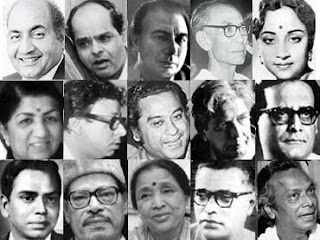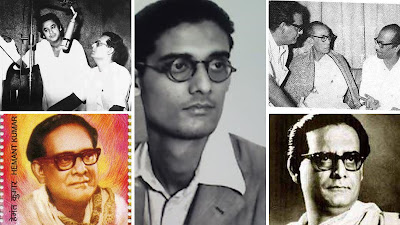PART -1 OF 10: THE PREAMBLE
I don’t know if there is anyway to be objective about music. It is not like string theory or the tuning fork experiment that you can postulate things through a well-established procedure. Music is one of those disciplines where you are afforded the right to be openly prejudiced about your preferences, and allowed to get away with phrases such as “personal taste”, “can’t relate to that music”, et al, and shut out the counter-opinion without sounding chauvinistic or downright stupid.
I am starting there because this series will have a bunch of opinions. Opinions that you will perhaps vehemently disagree with. Opinions that will shake the very foundations of your thought process. Opinions that will make you pose the existential question, Who Am I? No, no. I am not going that far.
Just know that my music tastes were largely conditioned by my family of delightful bigots. That includes my mom that bursts with South Indian pride quite inopportunely; my rabid SPB-S Janaki loving sister who had missed many a Pallavan bus and B.Com class to jot down songs from Vividh Bharati in her 'paatu pustakam'; and my cousin who shut his ears (and mine) off to all sound frequencies other than of SPB and Ilaiyaraja.
Wednesday Chitrahaar, which was a weekly religious chore in most Indian households of 70s and 80s, was met with illiberal scorn at my home. Family members and neighbors threw barbs at the clean-shaven, effeminate Hindi heroes of yesteryears ("Look at them! Not one of them has a mustache", complained my mom, her face knotted in a grimace. "And here even heroines have mustaches," my uncle retorted oozing with Iyer dry wit). My mom and her three sisters, all carnatically tutored, synchronized-shook their heads disapprovingly, as a drumstick-legged Amitabh Bachchan hollered and Rajesh Khanna eye-whipped to Kishore Kumar’s flat-voiced baritone (those infra digs, if you noticed them were not mine). Where is the gamakam? they asked in unison, in Thodi raagam. It was not a chauvinism borne out of ignorance.
“Things were not this bad before. Listen to Mohammad Rafi and Manna Dey. Rafi was a Muslim but he was an excellent singer,” my mom stated. Only my relatives could juxtapose an encomium with casual xenophobia in the same sentence. She then reeled of names of C Ramachandra, Shankar-Jaikishan, Naushad, OP Nayyar, and Salil Chowdhury establishing her GK in old Hindi film music. She must be right about the other things then, my impressionable mind had inferred.
This milieu didn't afford me to have catholic tastes on anything, let alone the subjective art of music appreciation. By the early eighties, I had become an ardent fan of Ilayaraja. I owed the shaping of my musical sensibilities to him more than to anyone else. It irked me that my older relatives were completely tone-deaf to his ingenuity. The sophisticated ones in the family name-dropped a bevy of northern music composer names, bindaas. What show offs, I thought. They argued that those composers were leaps ahead of the bald genius from Pannaipuram. My Maami, who was raised in Kolkata and spoke way too much Bengali for Mylapore dismissed Raja and SPB as cheap imitations of SD Burman and Mohammad Rafi, respectively. I frothed at my mouth but controlled my temper due to my diffidence (and owing to her Ajanubahu frame).
I pitied the elderly for their ignorance and vowed that I will keep myself fully abreast with any generational changes in music. Three-and-a-half decades later, I can report to you that I have gone quite in the opposite direction. Especially as far as Hindi music is concerned. My interests have led me to dig up the glorious past further and further.
I became a lifelong fan of Hindi film songs, especially between the years 1950 and 1975. What everyone calls (and I agree) is the Golden Age of Hindi Film Music. These essays are my ode to that beautiful era.







Comments
Post a Comment